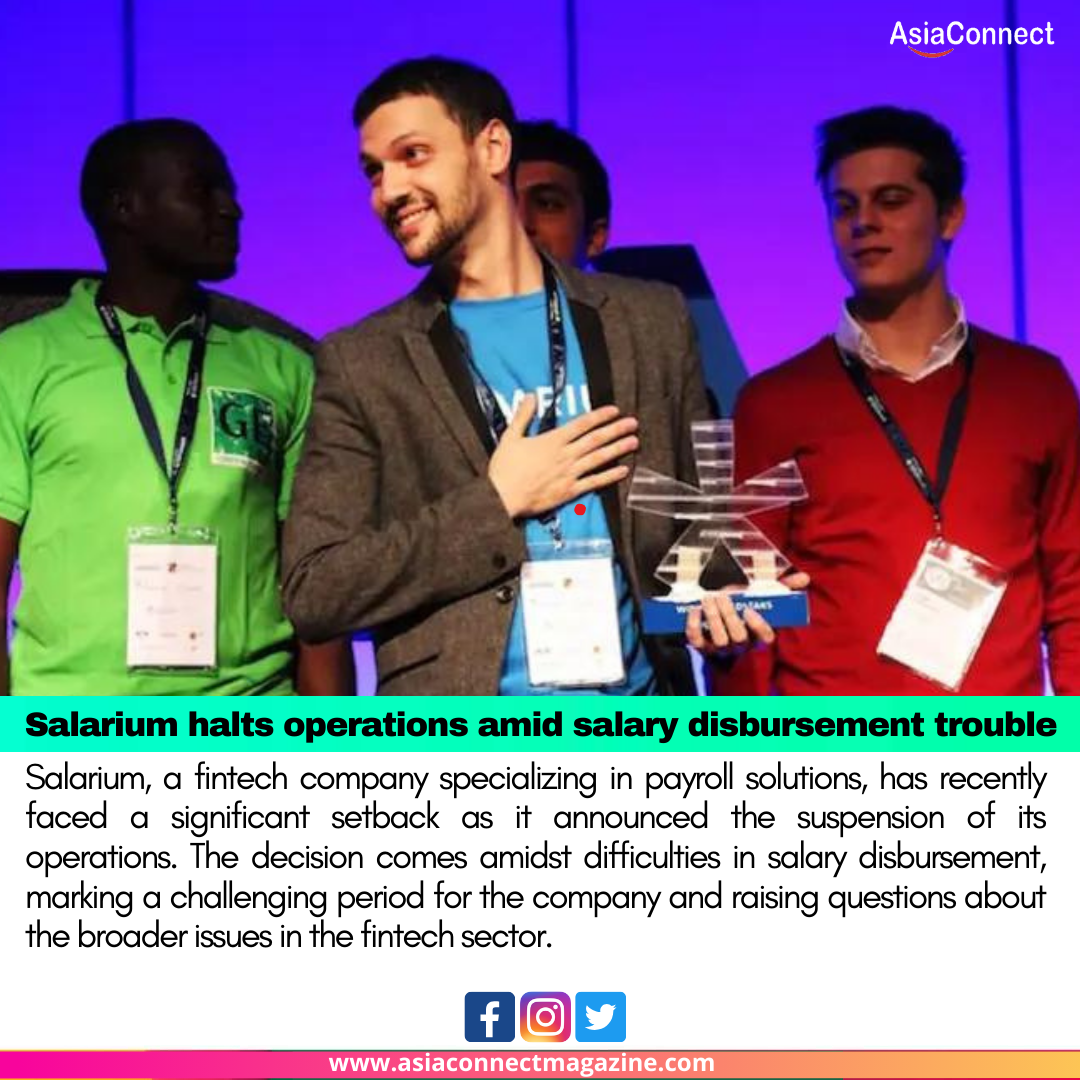Salarium, a fintech company specializing in payroll solutions, has recently faced a significant setback as it announced the suspension of its operations. The decision comes amidst difficulties in salary disbursement, marking a challenging period for the company and raising questions about the broader issues in the fintech sector.
The fintech landscape has witnessed substantial growth in recent years, with companies like Salarium playing a pivotal role in revolutionizing payroll and human resource management. Salarium, based on its innovative solutions, gained prominence in providing streamlined payroll processes for businesses, promising efficiency and accuracy in salary disbursements.
The decision to halt operations comes as a surprise, considering the initial success and positive trajectory the company had experienced. Salarium’s platform was designed to simplify payroll management for businesses of all sizes, offering features such as automated salary calculations, tax compliance, and employee self-service portals.
However, recent reports indicate that Salarium has encountered challenges in meeting its core objective of facilitating salary disbursements. The suspension of operations suggests that the company may be grappling with financial difficulties or operational issues that have compromised its ability to fulfill its commitments to client organizations and their employees.
The impact of Salarium’s decision is likely to be felt not only by the company itself but also by the businesses and employees relying on its payroll solutions. Clients may now face disruptions in their payroll processes, leading to potential financial and operational complications. Additionally, employees who depend on timely and accurate salary disbursements may experience delays or uncertainties in receiving their wages.
The situation raises broader questions about the fintech sector’s stability and the challenges faced by companies operating in this space. The rapid expansion of fintech has brought about transformative changes in various financial services, but it has also exposed companies to unique challenges, including regulatory scrutiny, market competition, and financial sustainability.
For Salarium, the road ahead remains uncertain, and the company’s ability to address the issues leading to the suspension of operations will likely determine its fate. The fintech sector, characterized by innovation and disruption, demands a high level of adaptability and resilience. Companies must navigate regulatory landscapes, ensure robust financial management, and build trust with clients to sustain their operations successfully.
The case of Salarium underscores the importance of due diligence for businesses and organizations when selecting fintech partners. Understanding the financial health, regulatory compliance, and operational stability of fintech providers is crucial to mitigating risks and ensuring a seamless experience for clients and end-users.
In conclusion, Salarium’s decision to halt operations amid salary disbursement troubles is a significant development in the fintech sector. It serves as a reminder of the challenges inherent in the rapid evolution of financial technology and highlights the importance of thorough assessment and risk management for both fintech companies and their clients. The outcome of Salarium’s situation will be closely watched by industry observers and may prompt a reevaluation of operational and financial risk considerations within the broader fintech ecosystem.





